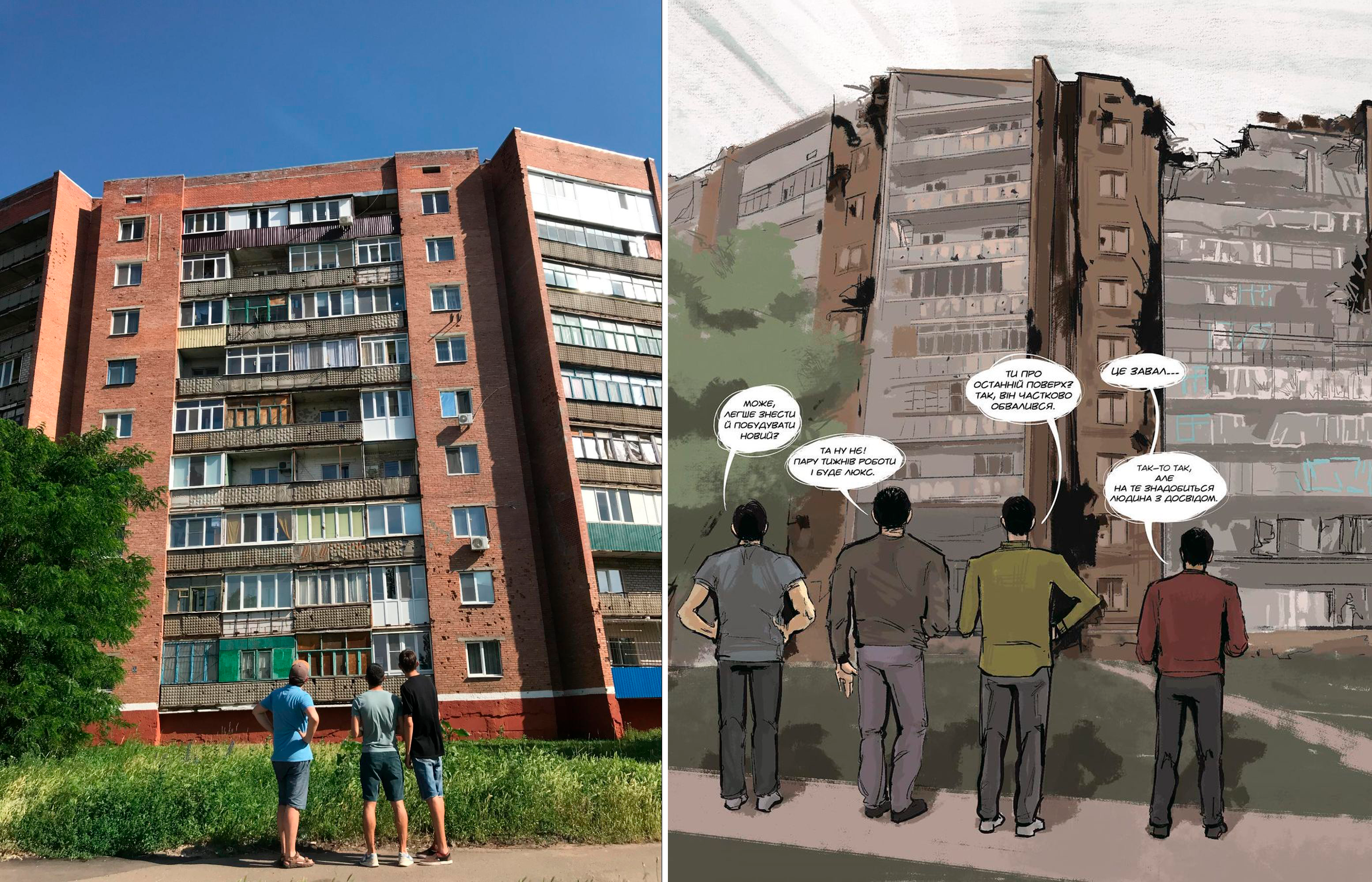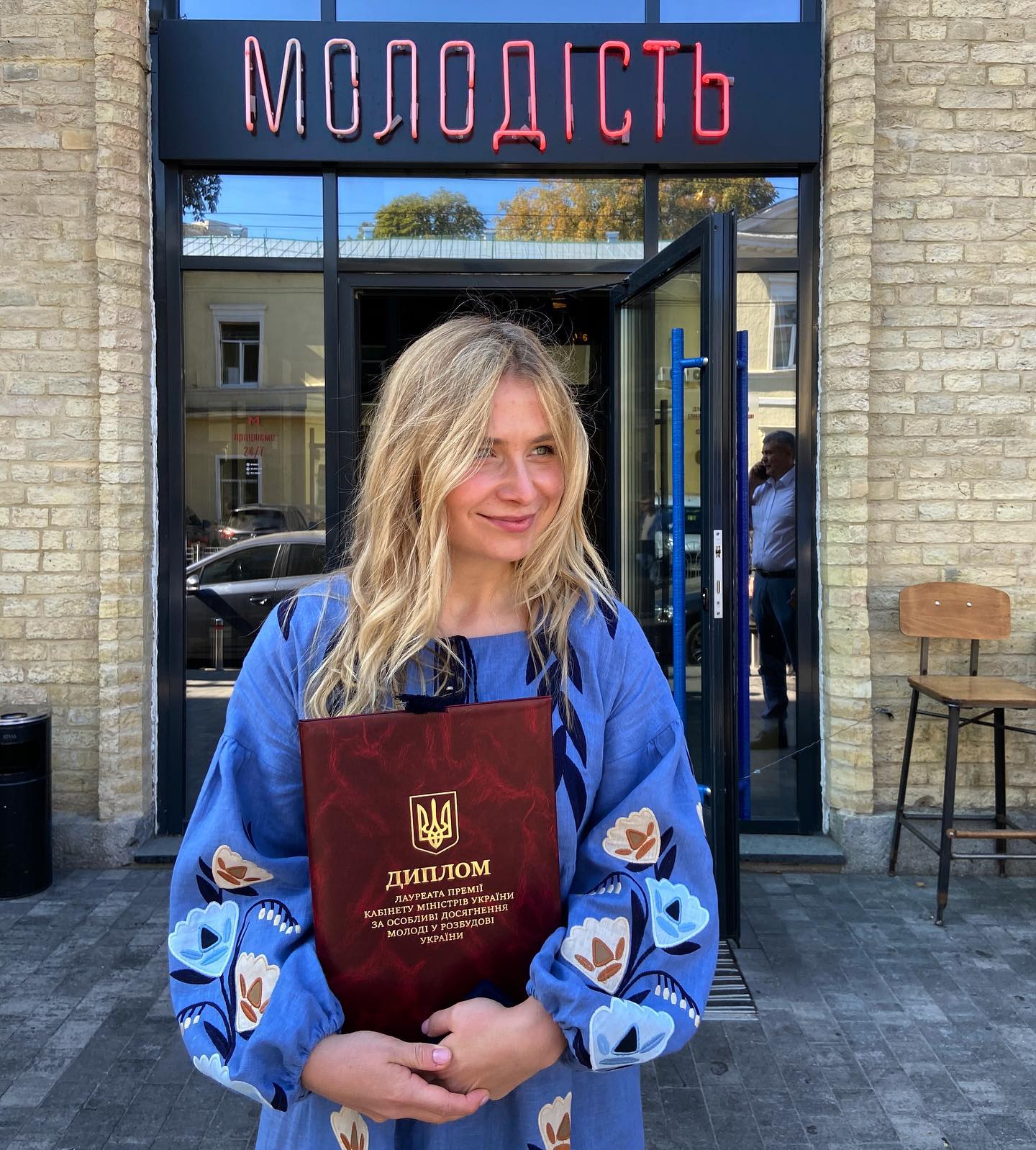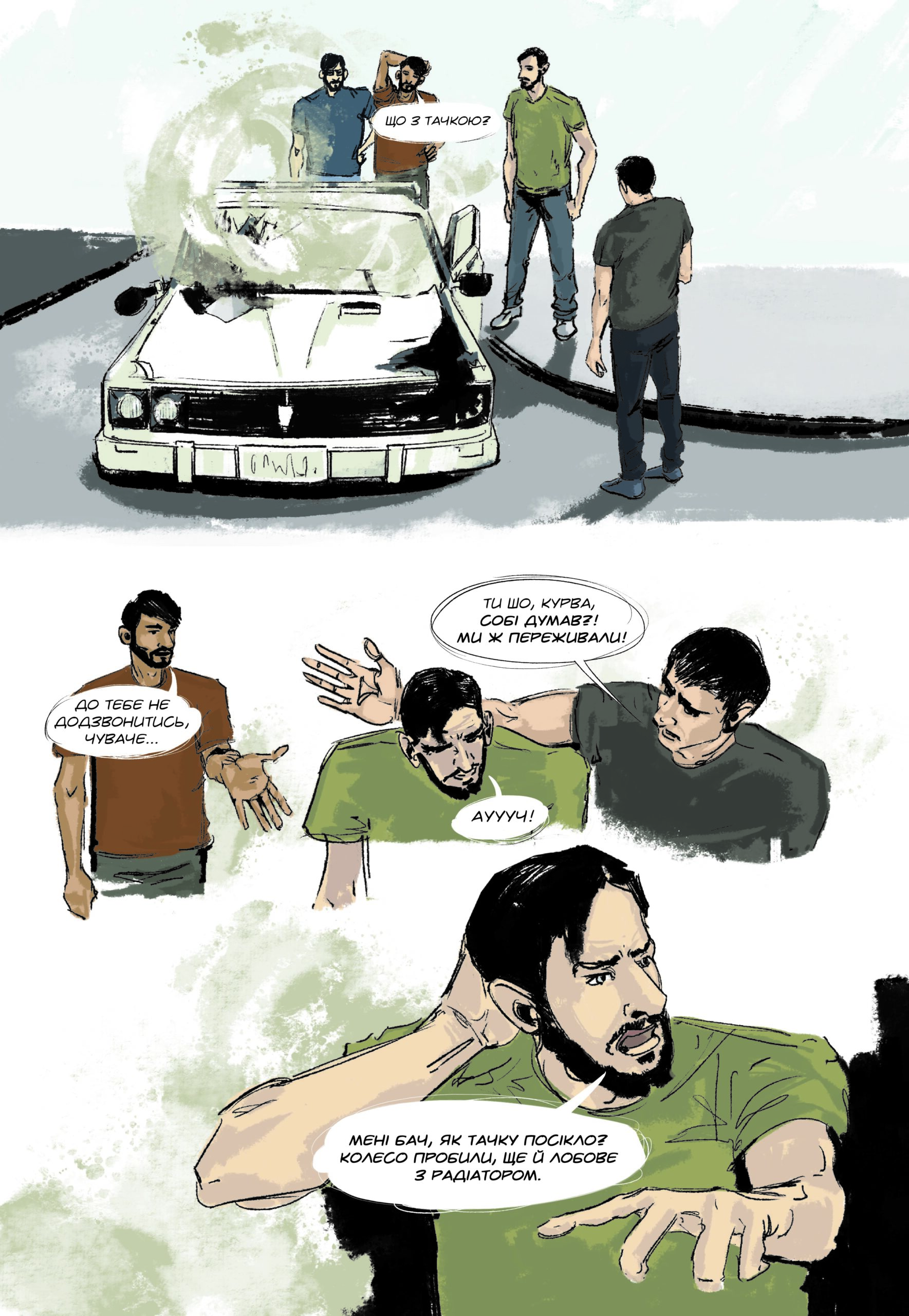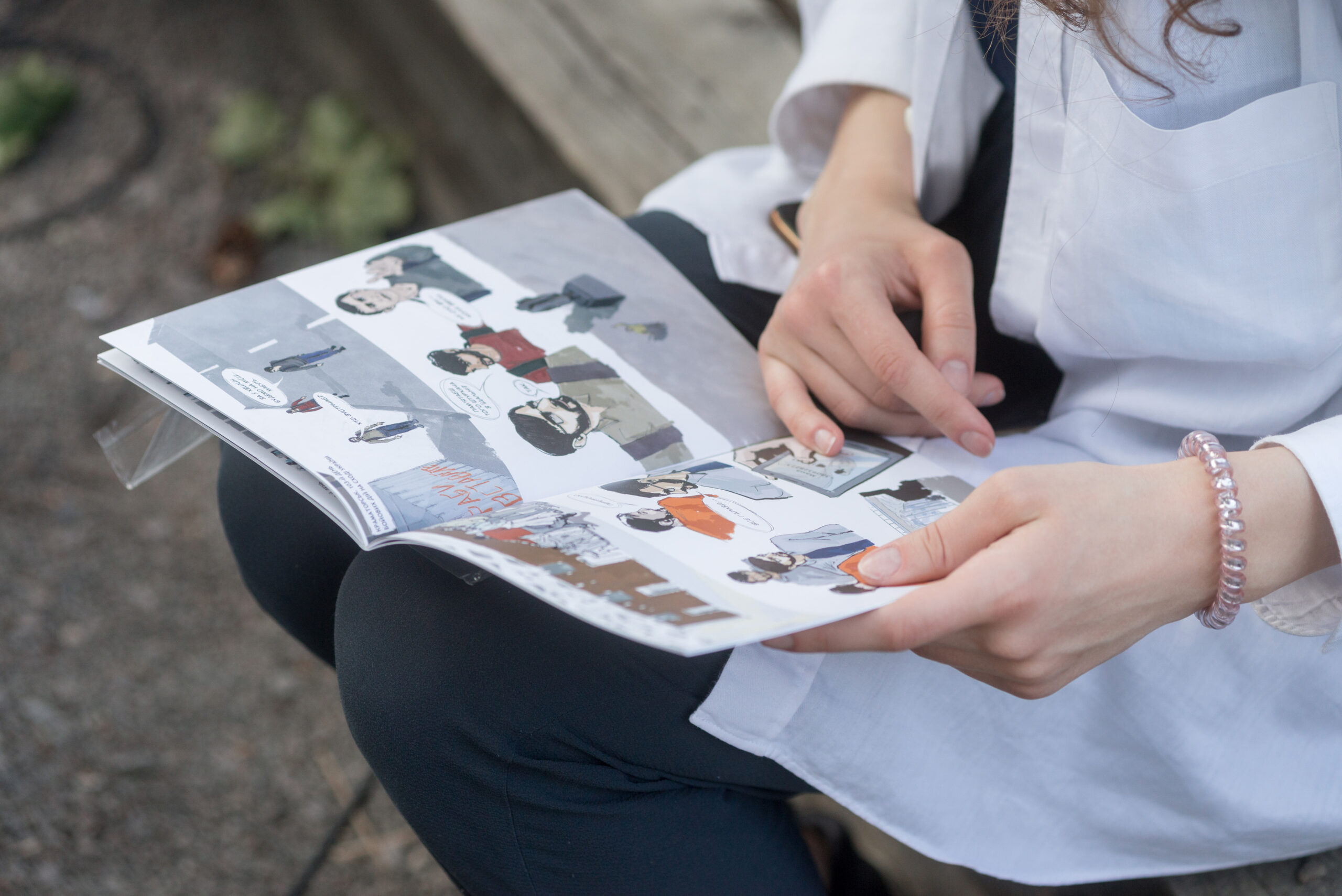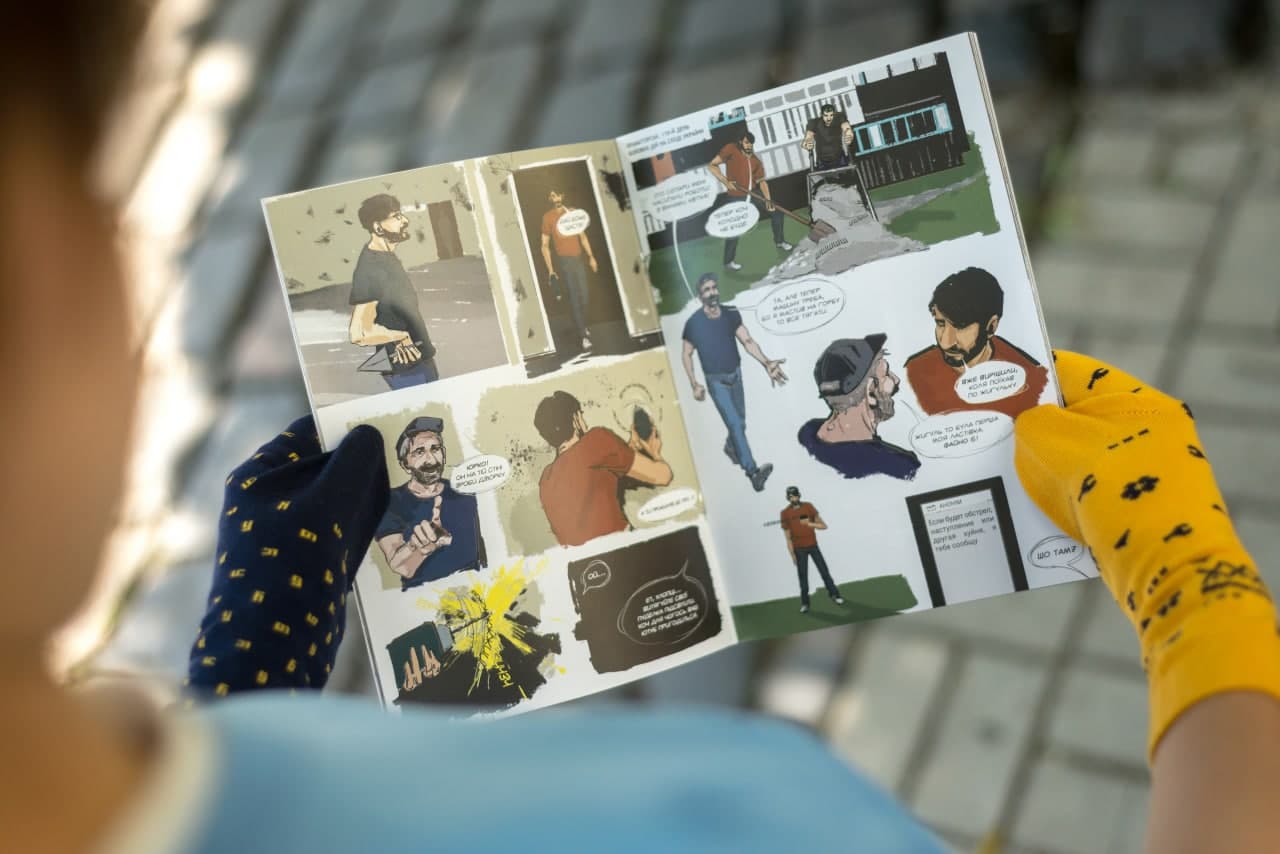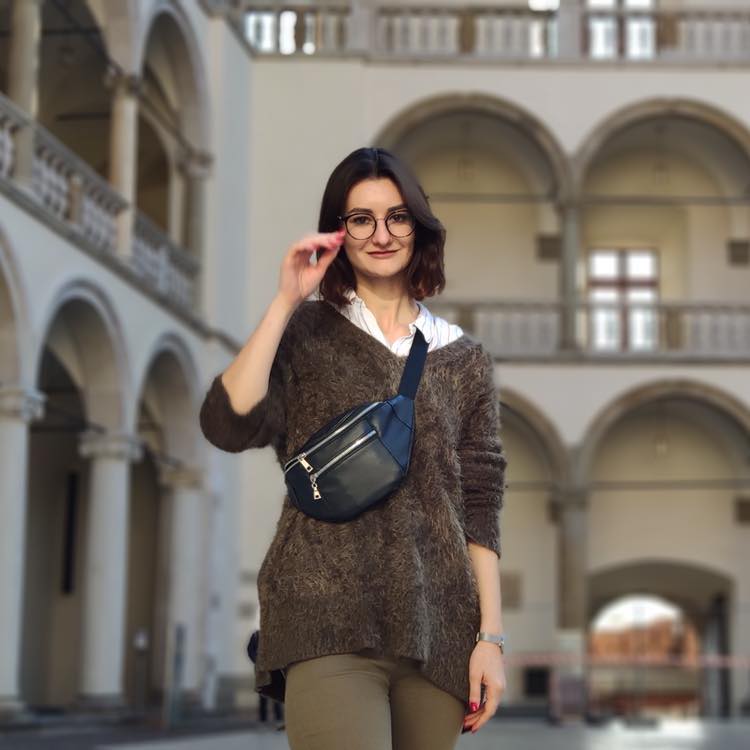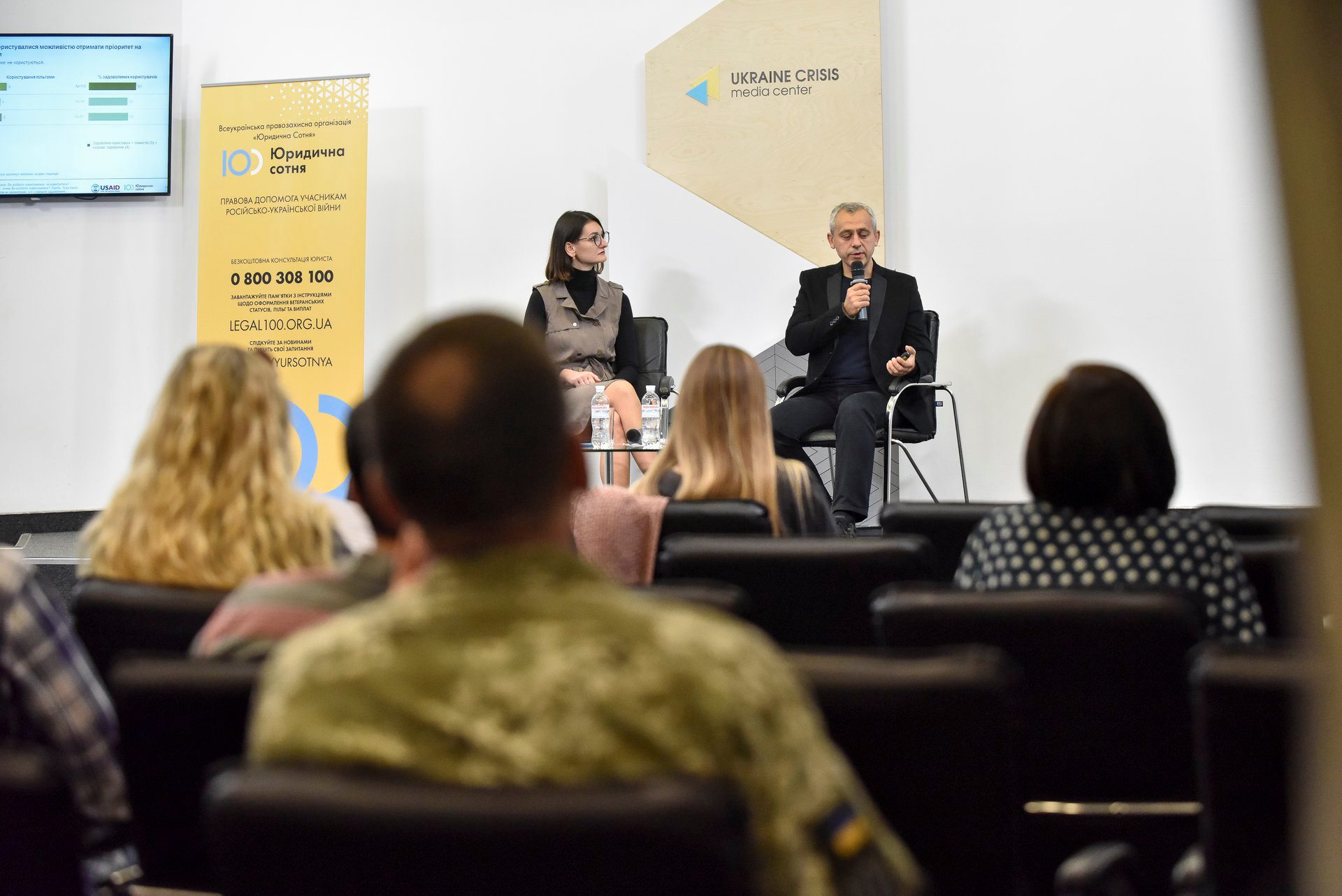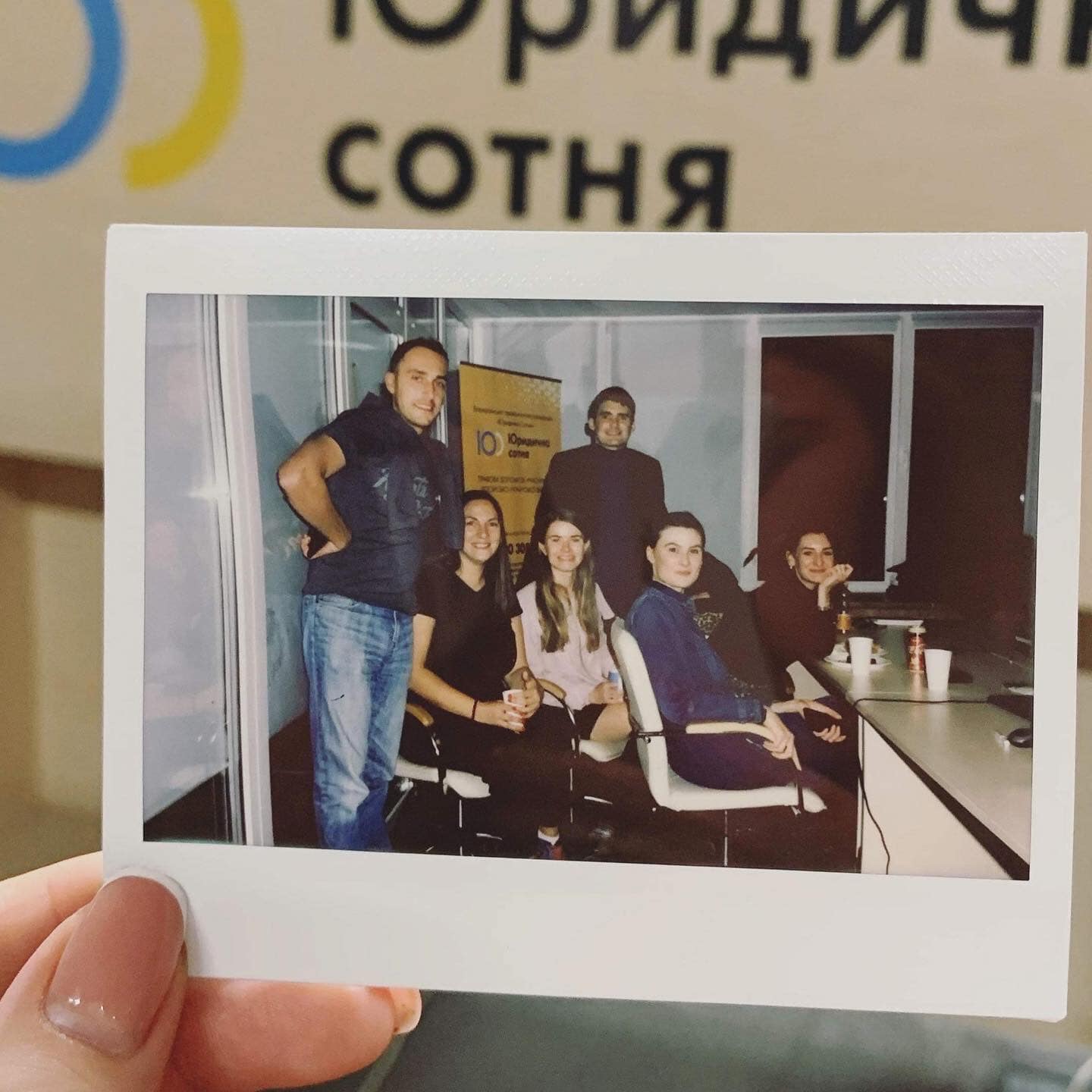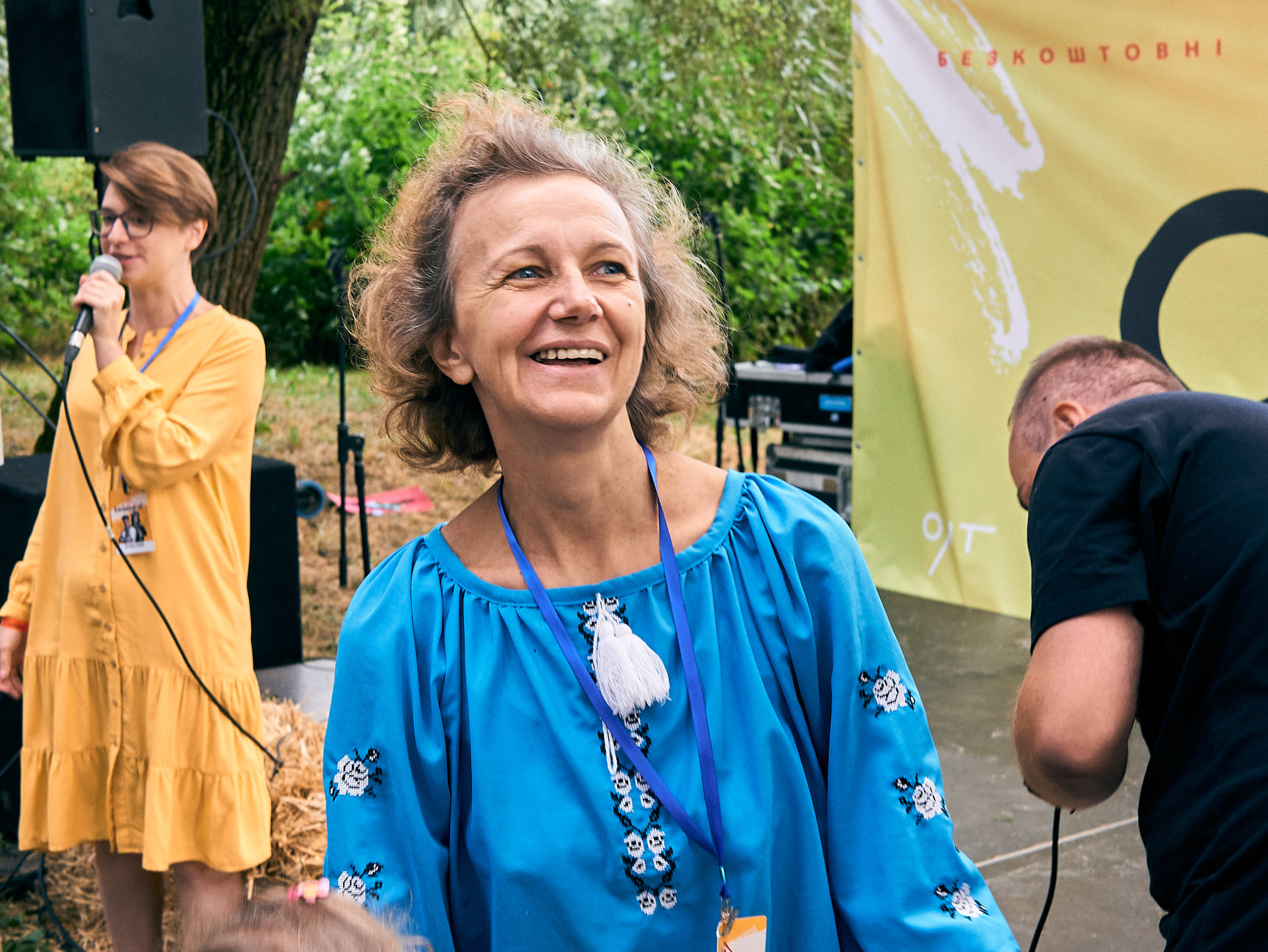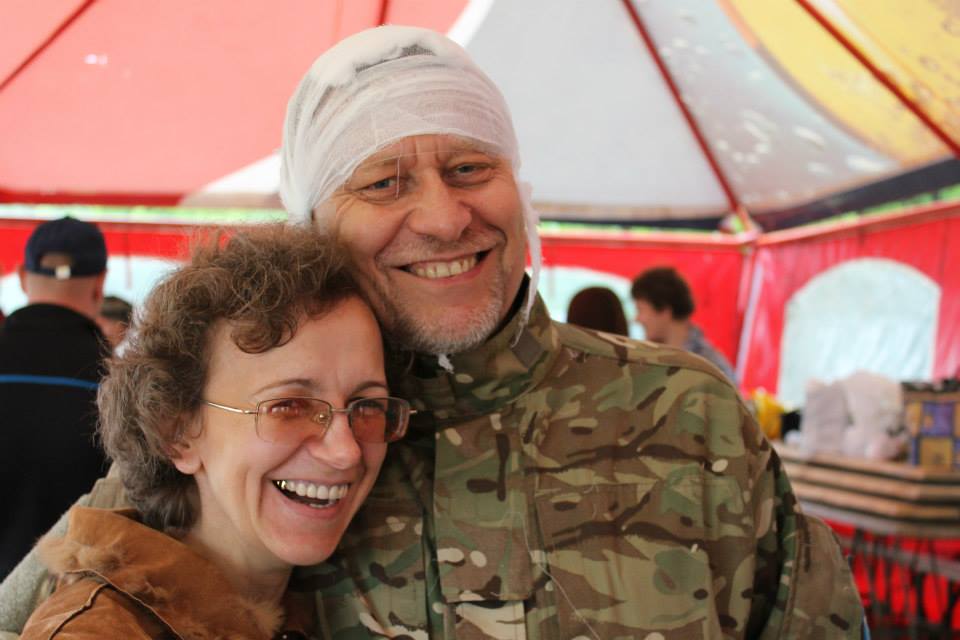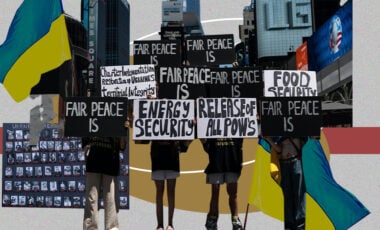Defending differently: stories of those who fight without weapons
Defending the country is about pain and loss. And also about stopping them. Ukraine is under the protection of soldiers, volunteers, hospitals, chaplains, military journalists, lawyers, and many others, each of whom does what they have to do.
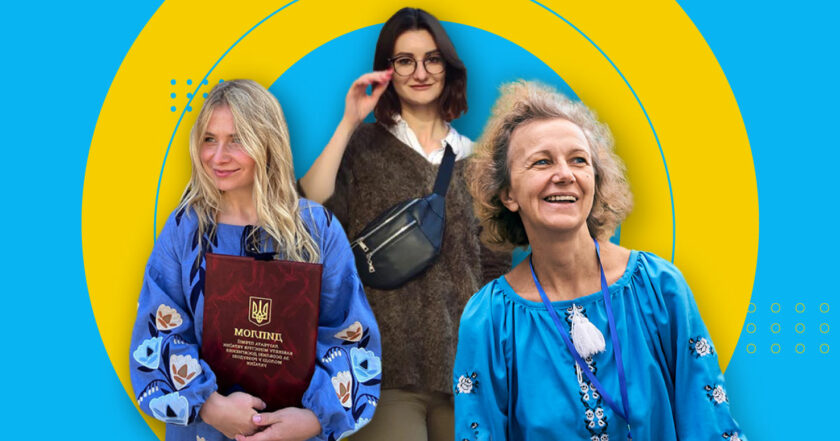
On the Day of Defenders and Women Defenders, Rubryka tells the stories of thousands of Ukrainians on the example of three women who defend the country without machine guns. They have another weapon: the word, the law, and the ability to unite.
"BUR leaves something newly created. Even if it's people united by BUR"
2014. The Lviv Educational Foundation decides they need to go to the East. Even before that, they've often contacted the residents of the newly liberated Kramatorsk, asking about the condition of the city and what help the locals need. Then they just go. Since then and until now, this principle has worked flawlessly in BUR, i.e. the volunteer organization, "Building Ukraine Together."
"There were four of them. Andrii, Yurko, Taras and Vitalii. They saw many destroyed buildings in the city, which were damaged during the liberation of the city. After some time, they returned to Kramatorsk, but with the reinforcement of volunteers. They found some building materials to help people. It was the end of summer, autumn and winter were coming. People needed homes," said BUR program manager Vira Pasishniuk.
Vira herself had come to BUR to volunteer for a week or two a few years ago and stayed for at least five years. Now she's one of those who create this volunteer program. Then, in 2014, they managed to repair 25 apartments in Kramatorsk in one of the most damaged buildings. Now BUR works all over the country. It renovates apartments, paints murals, creates creative spaces, playgrounds, and, most importantly, the connection between people.
"Then, in 2014 in Kramatorsk, the young people who stayed there and came every day to help and work, had some reflections every night, talking by the fire and talking about why this happened. These young people came together and decided that they wanted to do something together. Two months later, the idea of creating the first space, a youth hub, where young people can still gather, work, create, do some projects or just communicate, arose.
This is how the Vilna Khata appeared in December of the same 2014. And it was a kind of impetus: when BUR arrives, it builds the physically destroyed and leaves something newly created. Even if they're people united by BUR," says Vira.
The woman herself often went and still goes to camps. She communicates with volunteers, organizes teamwork, develops new ideas and their implementation. Vira and the entire BUR, including volunteers who join for at least a week, are among those who are fighting in the cultural field and trying to bring people back at a time when the military has to take back territory.
In 2021, a comic book was published about how BUR began. And every day their story continues.
"The personal number of the Legal Hundred founder has become a hotline"
August 2014. "It's such a hot summer," says Yulia Morii as she tells the story of how the Legal Hundred started. The organization provides free legal advice to anti-terrorist operation fighters and accompanies them at all stages before the court, providing primary legal assistance.
"The Legal Hundred was founded in the middle of 2014. It was formed as a Facebook community of lawyers who shared stories from different regions of wounded soldiers who need help with paperwork. They also went to a Kyiv hospital and helped with documents there.
Then it was August, such a sweltering summer of 2014. In general, nothing was arranged with the status, or with the documents, or with how to register the injuries. There were a lot of wounded, but no one was thinking about how to support them at that time," said the organization's director Yulia Morii.
For six months, the Facebook group of lawyers grew and expanded throughout the country. About 200 people joined the Legal Hundred, who volunteered to ensure that the law protected the country's defenders and didn't create additional difficulties for them. Over time, lawyers have developed an information guide with the most common questions, which is still in demand.
"And in mid-January 2015, a public organization was officially registered. And it all started with the support of people in government agencies, telephone consultations… Also, the personal number of the founder turned into a hotline. Then in 2015, they found funding to establish a full hotline, which the veterans have turned to for a consultation. The veterans' movement has slept a bit, and the demand for legal aid is only growing. In addition, it is a request for quality assistance," Yulia shared.
Today, the Legal Hundred already has 13 adopted and current laws, 5 more draft laws are being considered by the Verkhovna Rada. The organization joined the establishment of the Ministry of Veterans Affairs and provides monthly assistance to more than 1,200 servicemen, veterans, and their families.
"The soldiers didn't know what they were fighting for. And the volunteers gave them meaning"
"For me, it all started with my journalistic work. In 2014-2015, I worked for the Ukraina Moloda newspaper and was on the news feed. Then was the peak of the war. At the same time, journalists wrote how they brought bulletproof vests across the border and how they collected money for the army. All this information, which passed through the newspaper pages, was collecting in me as well," said Natalka Pozniak, a journalist, and writer who collects stories from volunteers and tells them to the entire country.
In 2020, Natalia's book "Volunteers: the Power of People Who Care" was published. These are 28 stories of volunteers from all over Ukraine. And the author attempts to remind us that the war continues and that we must still unite.
"We'd lived for 70 years under the mantra 'if only there was no war.' We were terrified of this war. And it came. It was difficult to understand that it was a war. And it was hard to fight. The soldiers didn't know what they were fighting for. And volunteers gave them meaning," says the writer.
Natalka travels the country and talks about volunteering. On her Facebook page, she posts about the anti-terrorist operation, and about when and what city she will visit. And she is tagged in numerous posts by volunteers. When I ask if she has been to the front line herself, she modestly answers: "I've ridden this way several times." At first, she wrote about volunteers and then went to the front with them.
"When I came to the front line with volunteers, the guys said that it seemed as if there was no more war. If you look at the news, the main topic is covid, and there's no more war. And we're gone. I'd like to remind you that the info bubble is one thing. But the war continues. Now there are only a few volunteers left and they're only in their zone of responsibility. When they left, they didn't demand anything. The only thing they wanted was for everyone to understand that they were doing something useful for society. And when they don't pay attention to it when they say that the army is secured, this devaluation hits very hard," Natalka shared.
The woman says that her book is a personal attempt to say "thank you" to all the volunteers and to everyone who transferred at least 5 hryvnias to the army, believing that they would save someone.



